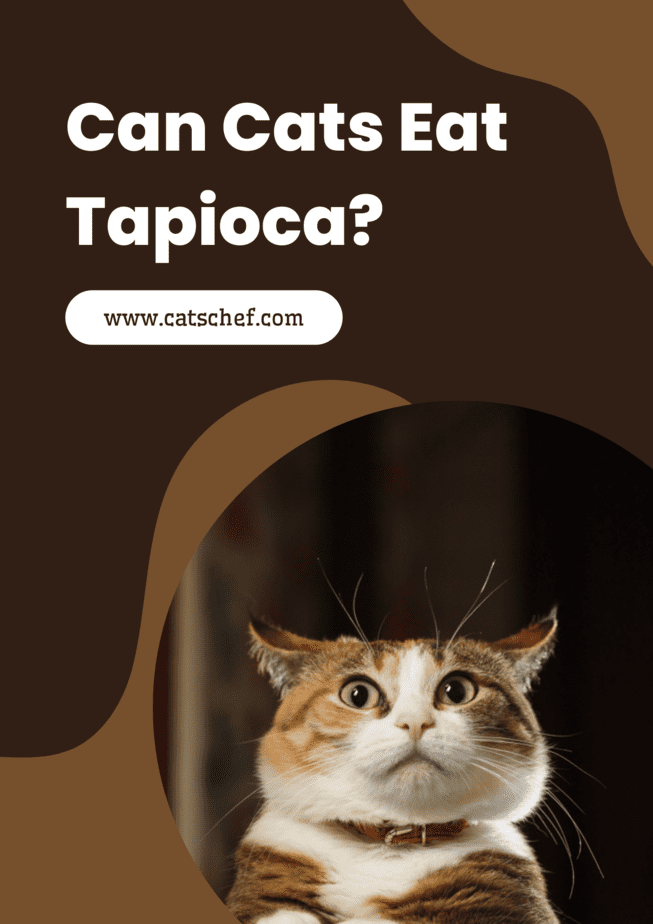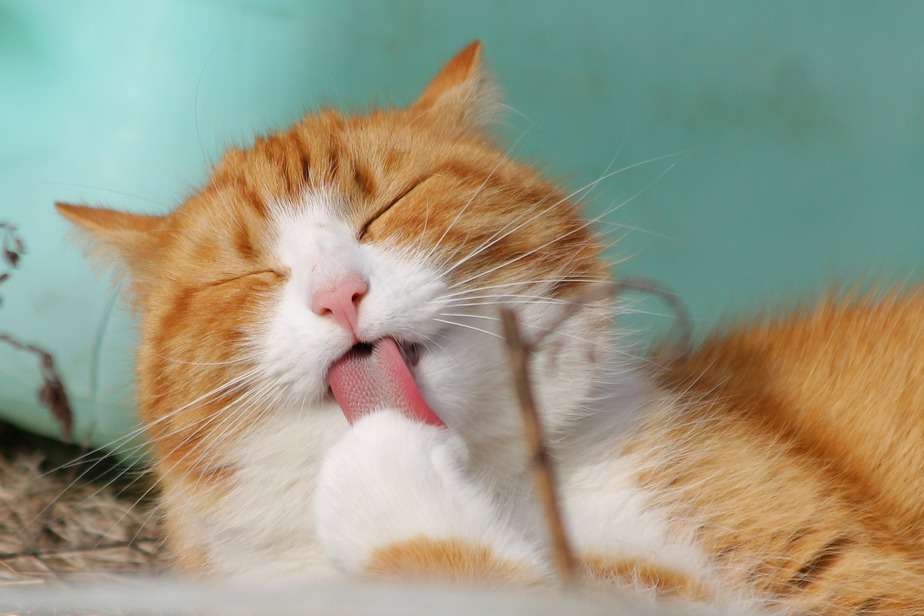Can cats eat tapioca? This may be an unusual question, but it’s an important one!
Tapioca can be found in many types of cat food, and as a responsible cat owner, you should know what goes down into your pet’s tummy.
Oftentimes we don’t see what these stealthy creatures get down their throat. However, we must research the foods we feed them to make sure they’re healthy. To keep our pets’ in their top form, we often pick the most expensive cat food.
Most people just grab pet food from the shelf that someone has recommended, and the majority of us never read the contents of the food we’re buying. Cats are usually fussy eaters, so we’re happy to see them eagerly munching down on certain foods.
Commercial cat food nowadays uses lots of filler components to reduce production costs. This means less meat which isn’t good news for carnivores like cats. If you started exploring cat foods and their content just recently, you might have come across tapioca as an ingredient.
What is tapioca?
It’s an almost pure starch that’s extracted from the cassava root. Not to be confused with garri, a product similar to tapioca which is also made of cassava root. This plant is a great source of calories and carbs and is native to South America.
Tapioca has low nutritional value as it’s almost entirely made of carbohydrates. This is one of the reasons why cats can eat tapioca, but shouldn’t. Low nutritional value food won’t benefit cats and could even harm them.
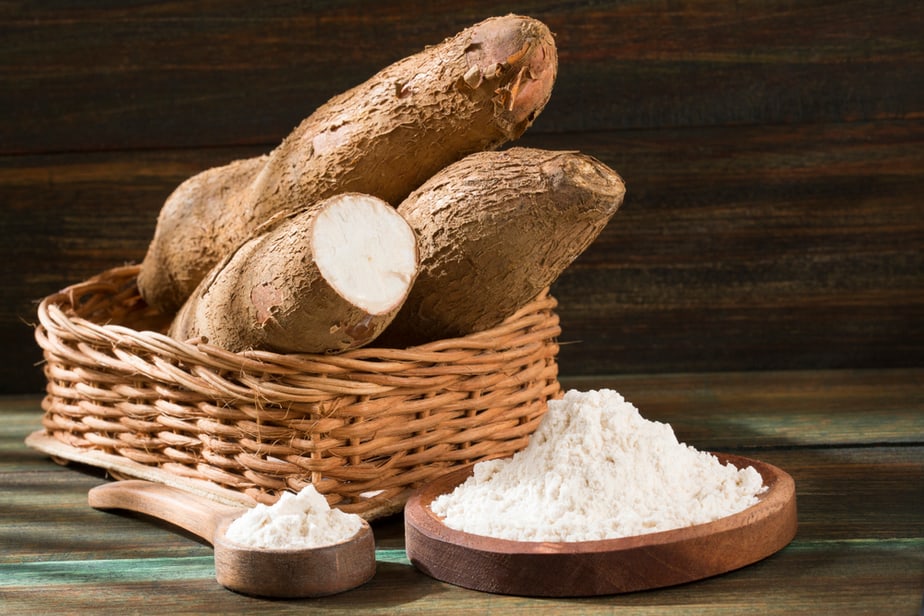
Carbohydrates are nutrients that don’t have a place in your cat’s diet. Felines don’t require these nutrients, and they can’t digest them properly.
Excessive amounts of carbohydrates could result in fat storage. Just like humans, cats are prone to gaining weight when they can’t digest something properly. This happens to older cats more frequently, as they become less mobile and active.
If your cat eats small amounts of carbs, you shouldn’t be that worried. However, don’t get too relaxed and start feeding your furkid high-carb and calorie-dense food. These can contribute to more severe health problems like diabetes in the long run.
Next to obesity, your cat may suffer dental problems, such as tooth decay. She needs her sharp razors to cut through the meat and cat dentists are often expensive!
Back to the older cats – they’re often at a high risk of developing arthritis. This disease is more likely to develop because of those extra few pounds. It may look cute to you, but these extra pounds will put added pressure on her joints, leading to arthritis.
Health benefits of tapioca
Although it’s almost entirely made of carbs, it’s a great supply of fiber as well. Fiber is necessary for good digestion and moving food through the digestive tract. This nutrient can help your pet if she’s having diarrhea.
Also, fiber is good for felines struggling with obesity. It tends to give the feeling of fullness. People who decide to go on a diet often choose high-fiber foods to maintain the feeling of a full stomach. So, if your pet needs to lose a pound or two, fiber is a good choice.
However, don’t start overfeeding your pet with fiber-rich foods as it can have an adverse effect. High amounts of this nutrient could mess with your cat’s digestive health and cause constipation. Remember – moderation is key!
Tapioca contains a small amount of resistant starch, which has similar properties to fiber and can help with digestion.
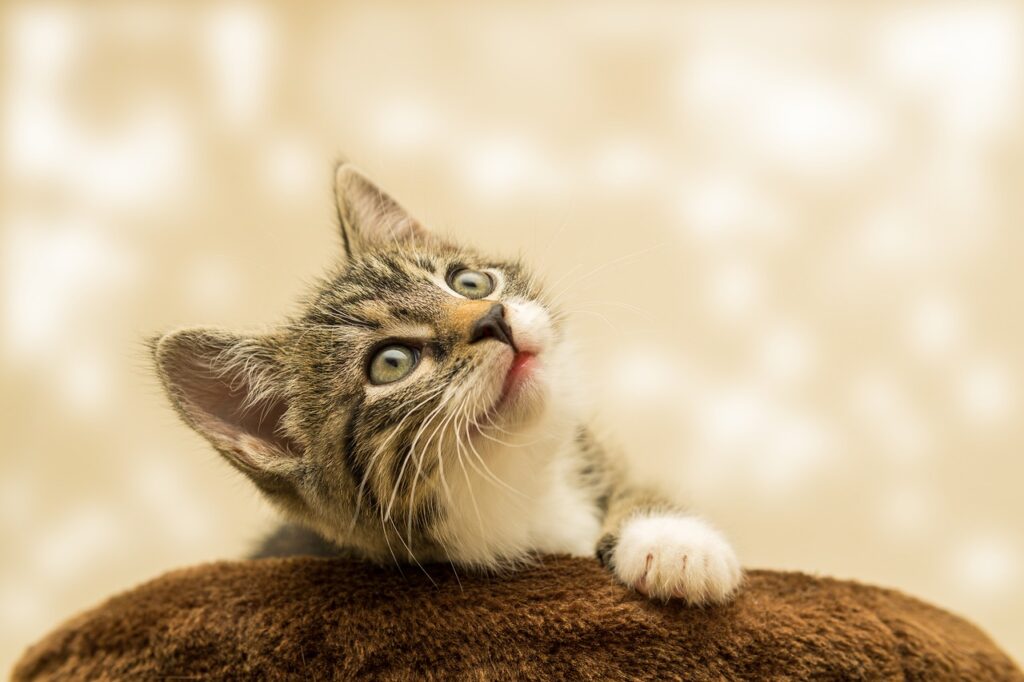
1. Gluten-free
If you’re struggling with your pet who’s prone to allergies, maybe this starchy plant can help. Because it’s gluten-free and naturally free of grains, tapioca could be a great substitute for grains such as wheat or corn.
Grains are often used as fillers in commercial cat foods. They’re full of fiber and maintain the nutritional value of food.
Grains found in your pet’s food help regulate digestion. They’re more often found in kibbles than wet food.
However, your feline may be allergic to certain grains. This could lead to respiratory problems, skin rashes, a stuffy nose, and so on. Nowadays, it’s hard to find grain-free cat foods. It’s possible, but it also means you’ll have to pay extra for that ‘luxury’.
Can cats eat tapioca instead of grains? Absolutely yes! In cat foods, tapioca is also used as a binder due to its thickening properties. So, if you’re looking for gluten-free food to serve your sensitive kitto, be on the lookout for tapioca content!
2. Traces of protein and other nutrients
Although the amount is negligible, tapioca still contains protein. This is an essential nutrient for felines that fuels their bodily systems. Without it, cats are at a high risk of becoming sick.
The bad news is that cats can’t really benefit from plant-based protein. Plants don’t contain the same supplements as meat does. For example, amino acids, which are crucial for your cat’s health, unfortunately, can’t be found in plant-derived protein.
Still, cats can eat tapioca even if it isn’t highly beneficial. However, there’s a chance these nutrients will go to waste, as plant material can’t be digested as well as meat.
Felines’ carnivorous system is unique and requires a modified diet. This means that while tapioca contains protein, it can in no way replace your pet’s main diet.
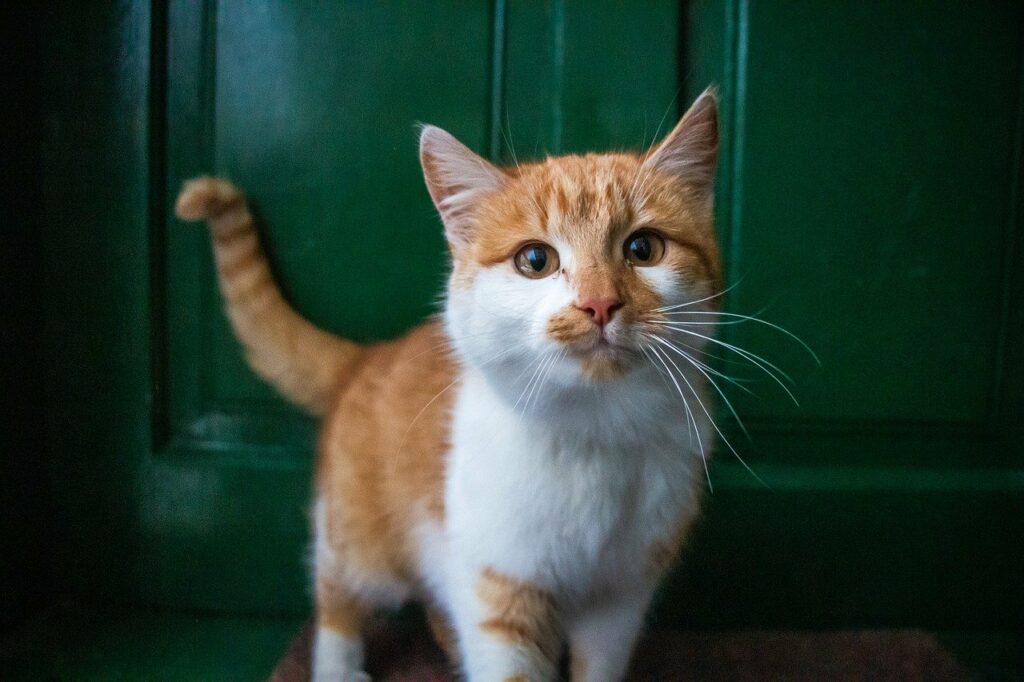
Next to protein, tapioca contains certain amounts of other health supplements like vitamins and minerals.
Minerals found in tapioca are iron and calcium. They’re crucial for an active, young cat that loves running and jumping on a daily. These nutrients make your furball’s bones stronger and help prevent bone fractures.
Besides bone health, iron has an important role in keeping the red blood cells healthy. This mineral’s deficiency could result in anemia which manifests itself as damaged red blood cells. Other health supplements like potassium, B vitamins, manganese, and others help with various body functions.
They help boost the immune system and make connective tissue. They also play an important role in muscle and nerve function and help prevent high blood pressure.
Can cats eat tapioca, a low-fat food?
Cats can eat tapioca because it’s low in fats. Felines require healthy fats in their diet in order to maintain energy levels. Tapioca contains low levels of this nutrient, which is okay because it will never be a cat’s main course.
The good thing is that tapioca is free of saturated fats that are harmful to felines. These are known to increase cholesterol levels in the blood, which poses a risk of heart diseases and stroke.
On the other hand, unsaturated fats are the ones your pet can actually benefit from. Unlike saturated fats, these help keep cholesterol levels in check.
The risks of feeding tapioca
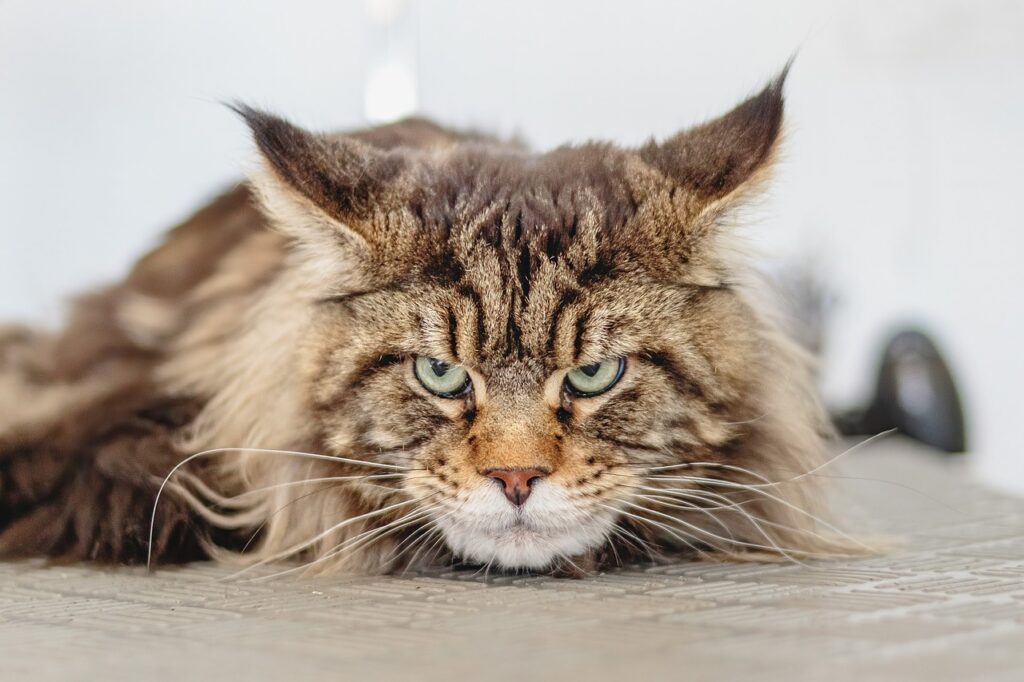
While cats can eat tapioca in cat foods, it’s not recommended to feed it in any other form. Besides having little nutritional value, it can pose a risk to your pet’s health.
Tapioca contains hydrogen cyanide which can be dangerous to felines. Depending on the dose, this chemical can be toxic to cats.
It’s not common for your pet to feast on tapioca and get poisoned by cyanide. However, if she’s somehow exposed to it for a longer period of time, she may exhibit some side effects.
These include general weakness, confusion, anxiety, drowsiness, deafness, as well as visual impairment. These are some serious problems that could violate your pet’s life quality. Although this doesn’t necessarily mean your pet will get ill after consuming foods with tapioca, the risks are still there.
It’s important to mention that it’s more common for cyanide poisoning to occur when ingesting fresh tapioca. Tapioca that’s commercially produced doesn’t typically contain harmful levels of these compounds and is, therefore, safer to consume.
Tapioca is a great substitute for grains if your cat’s sensitive and has allergic reactions. However, this doesn’t mean it’s healthier than grains. Its high carbohydrate and calorie content can still cause problems if ingested in excessive amounts.
Can cats eat tapioca flour and starch?
Yes, cats can eat tapioca flour as it’s not poisonous to them. It is used as a binding agent since it thickens rather quickly. Still, it’s unlikely your furkid will show interest in this flour because it doesn’t have the enticing smell that felines look for.
Due to its bland taste, tapioca starch is often found in cat foods. The companies are probably more than happy with tapioca starch as it’s neutral in flavor and serves better as a binder.
And it’s gluten-free! It’s a win-win situation for both pets and companies.
Can cats eat tapioca pearls?
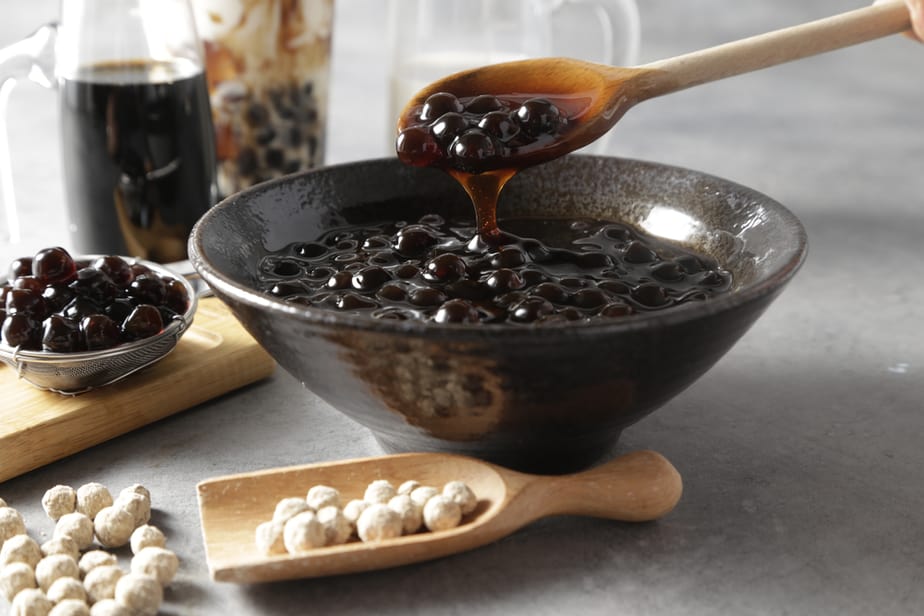
Tapioca pearls are jelly-like balls produced from tapioca starch. Raw tapioca pearls aren’t recommended for cats or humans.
You may be confused with the term boba. Bobas are tapioca pearls that have been colored to appear black.
Cooked tapioca pearls are safe for cats. However, they are low in nutrition and probably not the best choice of food for felines. They are high in carbs and fiber, but low in protein and healthy fats.
When it comes to boba or black tapioca pearls, they are not recommended for cats. The artificial flavors and coloring can be harmful to felines.
As for the raw tapioca pearls, they’re not safe for cats since they present a risk of cyanide poisoning.
What about bubble tea?
Cooked tapioca pearls are frequently used in bubble tea. Bubble tea is a cold, sweet beverage also known as boba tea. It’s typically made with brewed tea, tapioca pearls, ice cubes, syrup, and milk.
Bubble tea is frequently made with black tapioca pearls, which contain brown sugar. This beverage is typically high in added sugar.
While tapioca pearls are safe for cats when cooked, the rest of the ingredients are nowhere near being safe. Tea is healthy for humans but can be detrimental to cats. Any type of tea that contains caffeine can even be poisonous to felines.
Caffeine, also found in coffee beans, is a compound that causes severe medical problems in cats. Just like theobromine found in chocolate, it can have a fatal outcome and severe consequences on your pet’s health.
When it comes to milk, it’s a big no-no for cats. Dairy is frowned upon in the feline world because cats are lactose intolerant.
Your pet, like some humans, may experience the runs if she consumes milk and other dairy products. Just like with sour cream, a few licks of milk here and there are unlikely to harm her.
Cats stop producing lactase, an enzyme that breaks down lactose, after the first 15 weeks of their life. This means that dairy consumption can result in stomach distress and symptoms such as diarrhea, vomiting, and bloating.
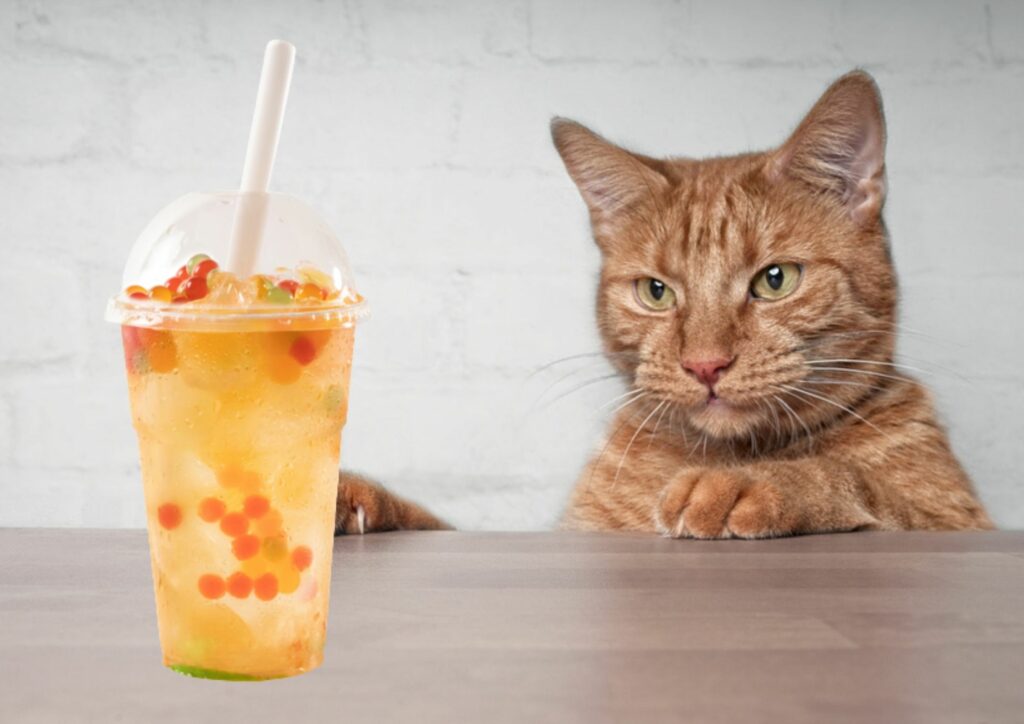
Syrup and sugars in bubble tea
Syrup and added sugars are a risk to your cat’s health as well. Felines don’t digest plant material that well and therefore, high amounts of it could be harmful to them.
You shouldn’t be concerned if your cat consumes small amounts of carbohydrates. In the long run, these can lead to more serious health issues.
In addition to obesity, your cat may suffer from dental issues such as tooth decay, and potentially diabetes.
If she’s put on a few extra pounds, joint inflammation is very likely to develop. Although it may appear cute to you, these extra pounds will put additional strain on her joints, eventually leading to arthritis.
Can cats eat tapioca pudding?
If it’s only a teaspoon from your bowl every once in a while, then yes, cats can eat tapioca pudding. Anything more than that is not really recommended. This treat has similar ingredients to rice pudding, meaning high dairy content.
We have already established that dairy isn’t a welcome guest in the cat world. Moreover, tapioca puddings contain added sugars as well as cinnamon. We know sugar is bad for cats, but what about cinnamon?
Cinnamon has a strong smell that attracts people but repels cats. This spice offers a potent aroma in a variety of human dishes, but it is not appealing to your kitto.
It contains coumarin, which is toxic to cats. Make an appointment with your veterinarian as soon as possible if your cat comes into contact with cinnamon by skin contact, inhalation, or unintended licking.
All in all, your furkid should stay away from tapioca pudding. Dairy, sugar, and cinnamon are all reasons for concern. An occasional treat is fine, but that’s about it.
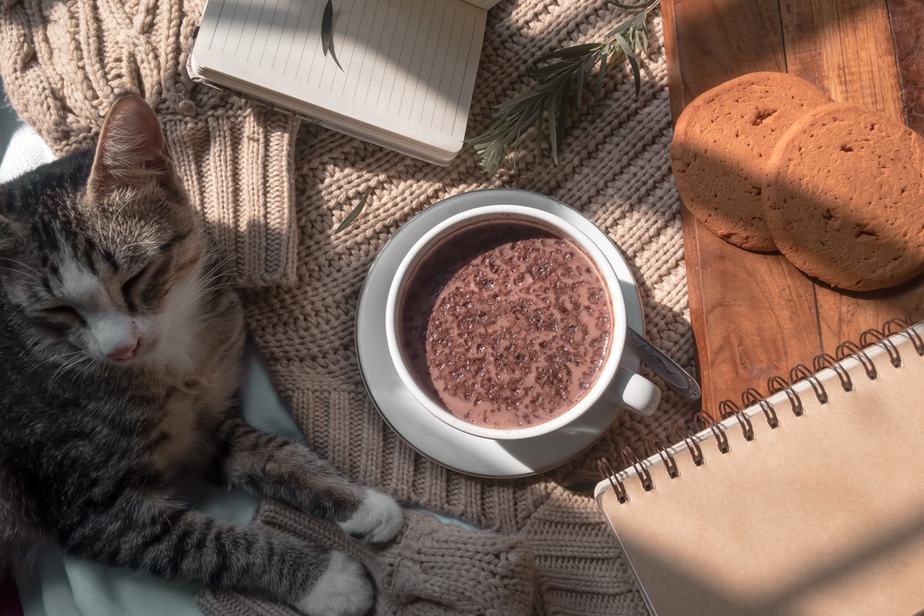
In summary
We hope you found all the answers to the question “Can cats eat tapioca?“. Tapioca is safe as long as it’s not consumed regularly and in large amounts. Make sure it is always cooked, as eating raw tapioca can result in possible cyanide poisoning.
Tapioca starch is used as a filler in cat foods instead of the usual grains. It is gluten-free and more affordable, making it a great option for cats and cat-food companies. However, this doesn’t mean that it’s much safer than grains.
This cassava root extract is high in carbs and calories which isn’t good news for felines. They’re hard for them to digest and can cause health issues in the long run. Other tapioca foods like bubble tea and pudding are not recommended either.
Tapioca has its pros and cons, so it’s best to talk to your veterinarian before introducing this food into your feline’s diet. Weigh the positive and negative effects and pick out the best diet for your furkid.
Read more: Can Cats Eat Nutritional Yeast? Is It Safe For Her To Feast?
